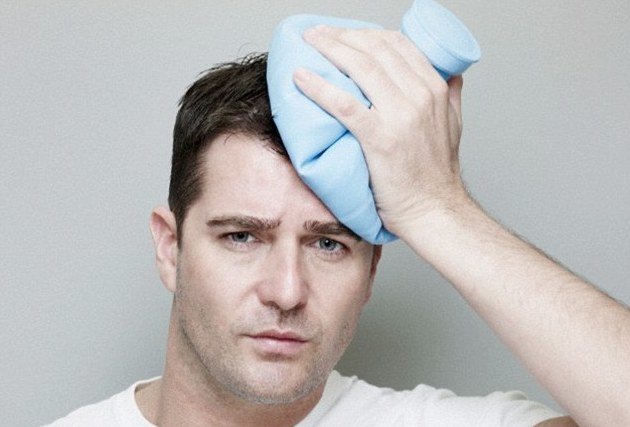Repeated MINOR knocks to the head `can trigger dementia` - STUDY

Recently, Hollywood actor Will Smith starred in a film, Concussion, about the discovery of a type of dementia stemming from these injuries - called chronic traumatic encephalopathy (CTE).
But now, scientists have revealed even repeated minor head traumas can trigger early dementia.
A team of experts from Massey University, in New Zealand, found that nearly 75 per cent of people with dementia have suffered some sort of traumatic head injury in the past.
Furthermore, the long-term effects of repeated blows to the head are just as damaging as a single episode of a higher-grade head trauma.
The findings suggest that the brain is affected by the way the body responds to such injuries - which cause micro-hemorrhages, inflammatory responses and nerve death.
Study author Virginia Westerberg said: ‘The conclusion was that the direct and indirect consequences of traumatic injury – not only to the head but also to other body areas, if significant – could constitute a plausible risk factor for the earlier development or faster progression of dementia.’
The link between early dementia and concussions was first found by a Nigerian-American forensic neuropathologist, Dr Bennet Omalu.
Dr Omalu, who was recently depicted by Will Smith, made the discovery when performing an autopsy on a former Pittsburgh Steelers football player.
The condition he discovered, CTE, is a type of dementia that affects the bodies of neurons that specialize in memory, language, perception, thought and attention.
In the current study, scientists analyzed data from 7,000 patients treated at Palmerston North Hospital.
They found that a history of traumatic injury was more frequently found in cases with dementia.
Of the cases in the study, 73 per cent of dementia patients had a past traumatic injury that was significant enough to warrant an emergency room visit.
In contrast, only 26 per cent of the non-dementia patients in the study had a history of trauma.
The data didn’t specify whether the injuries were sustained through falls, blows, accidents or sporting injuries.
Ms Westerberg said: ‘The long term effects of repeated mild blows to the head were as exceedingly common as they were unreported and as damaging as a single episode of a higher grade brain trauma.’
Further research could provide evidence that a repeated, minor traumatic event could cause organic or functional brain damage leading to progressive cognitive impairment – such as dementia.
The scientist added: ‘For the time being, because there is no treatment or cure for CTE, risk awareness of your sport and injury prevention are vital.
‘Great emphasis is put by most official sports organizations about wearing protective headgear during training and in competitions.’















































